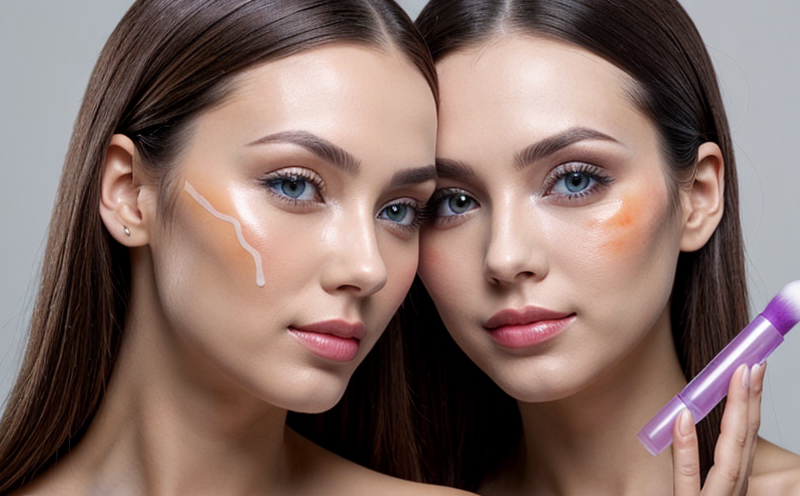Serum Preservative Testing
In the realm of cosmetic product development and quality assurance, serum preservatives play a critical role in ensuring the stability and safety of formulations. These preservatives act as inhibitors to prevent contamination by microorganisms such as bacteria, fungi, and yeasts. Given the stringent regulatory requirements for cosmetics worldwide, accurate and reliable testing is essential.
Our serum preservative testing service ensures that all products meet the highest standards set forth in relevant international standards like ISO 21778:2014, ASTM D3695-19, and IEC 62321. These standards outline specific methodologies for assessing the efficacy of preservatives against a range of microorganisms.
The testing process involves several key steps. First, we receive the sample serum and prepare it according to industry best practices. This may include diluting the product or adjusting its pH level if necessary. Next, we inoculate the samples with various strains of microorganisms known to challenge preservative efficacy. The incubation period varies based on the specific standards being followed; typically, this ranges from 14 days for ISO 21778:2014 to 28 days for ASTM D3695-19.
Once the samples have been exposed to these microorganisms over the prescribed time frame, they undergo visual inspection and microbial counting. Visual assessment helps identify any visible changes in the product that might indicate contamination. Microbial counts are taken at regular intervals throughout the testing period to determine whether growth has occurred despite the presence of preservatives.
The results from our tests provide valuable insights into the effectiveness of different preservatives under controlled conditions. This information is crucial for cosmetic manufacturers looking to ensure their products meet regulatory requirements and maintain consumer trust by delivering safe, high-quality products.
- Visual Inspection: Ensures no visible signs of microbial growth.
- Microbial Counting: Quantifies any bacteria or fungi present in the product post-exposure to test microorganisms.
- Inoculation Methodology: Follows internationally recognized protocols for introducing harmful microbes into the sample environment.
By leveraging these rigorous testing procedures, we help our clients stay compliant with global regulatory frameworks and enhance their product quality assurance programs. Our expertise ensures that each test is conducted meticulously to provide accurate results that can be trusted by both manufacturers and regulators alike.
Applied Standards
The standards governing serum preservative testing are extensive but crucial for ensuring consistent and reliable results across different laboratories worldwide. For instance, ISO 21778:2014 specifies the procedure for determining antimicrobial efficacy of preservatives used in cosmetic products. ASTM D3695-19 provides guidance on evaluating preservatives against various types of microorganisms commonly found in cosmetics.
IEC 62321 focuses more specifically on biocidal agents, which are often included as preservatives in medical devices and pharmaceuticals but also relevant to certain cosmetics. By adhering strictly to these guidelines, we ensure that our tests not only meet but exceed industry expectations regarding precision and accuracy.
Our commitment to using up-to-date standards ensures that every test conducted reflects current scientific understanding and best practices within the field of preservative efficacy evaluation. This commitment translates into more accurate assessments which ultimately benefit both our clients and end-users by providing safer, longer-lasting cosmetic products.
Quality and Reliability Assurance
At [Lab Name], maintaining high standards in quality assurance is paramount to delivering reliable test results. Our dedicated team of experts uses state-of-the-art equipment calibrated regularly to ensure accurate measurements every time. We employ advanced analytical techniques such as High Performance Liquid Chromatography (HPLC) and Gas Chromatography Mass Spectrometry (GC-MS), which allow us to detect even trace amounts of preservatives.
We also maintain strict adherence to Good Laboratory Practices (GLP) throughout all stages of testing, from sample receipt through final analysis. GLP regulations are designed to ensure that laboratory studies are conducted in a way that produces valid and reproducible results. Compliance with these practices guarantees the integrity and credibility of our findings.
In addition to technical proficiency, we invest heavily in continuous training for our personnel to stay abreast of emerging trends and technologies within the field. Regular audits and peer reviews further reinforce our quality commitment by identifying areas for improvement continuously. Through this comprehensive approach, we strive to provide clients with peace of mind knowing that their products are being tested under stringent conditions.





